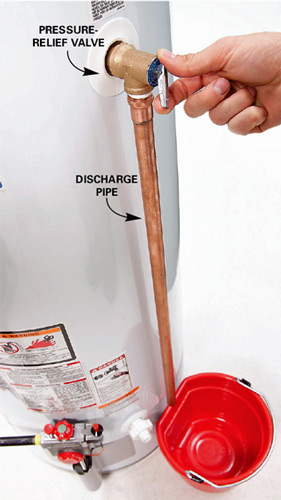Methods to Address the Common Water Heater Emergency Challenges
Methods to Address the Common Water Heater Emergency Challenges
Blog Article
Each person seems to have their own unique concepts when it comes to Common Hot Water Heater Problems.

A water heater is one of one of the most vital fundamental appliances that can be located in a residence. With hot water heater, you do not require to go through the stress and anxiety of home heating water manually whenever there is a demand to take a bath, wash, or the dishes. There is always an opportunity that your water heating unit would certainly act up as with the majority of mechanical gadgets.
It is necessary to note any kind of little breakdown and tackle it promptly before points get out of hand. The majority of times, your water heater begins to malfunction when there is a build-up of debris as a result of continuous usage. As a safety measure, routine flushing of your hot water heater is suggested to stop sediment accumulation and also avoid useful failing.
Common water heater emergency situations and also just how to deal with them
Leaky hot water heater container.
In this situation, you must transform off your water heater, allow it to cool down, and also carefully look for the resource of the problem. At times, all you need to do is to tighten up a couple of screws or pipe links in instances of minor leaks. If this does not work and also the leak lingers, you might require to employ the solutions of a technician for an ideal substitute.
Fluctuating water temperature level.
Your water heating unit might start creating water of different temperature levels normally ice scalding or cool warm. There might be a need to change either the thermostat or the heating device of your water heater.
Insufficient warm water
It might be that the water heating system can't sustain the warm water demand for your home. You might upgrade your water heater to one with a bigger capability.
Stained or odiferous water
When this happens, you need to recognize if the issue is from the container or the water source. If there is no funny scent when you run chilly water, after that you are specific that it is your water heater that is damaged. The smelly water can be caused by corrosion or the accumulation of microorganisms or debris in the water heating unit container.
Final thought
Some homeowners neglect little warning and also minor faults in their water heater system. This only brings about additional damages and a feasible full breakdown of your home appliance. You need to handle your hot water heater mistakes as soon as they come up to avoid more expenses and unnecessary emergency problems.
With water heating systems, you do not need to go with the stress of home heating water manually every time there is a demand to take a bathroom, do the washing, or the dishes. Your water heating unit could begin creating water of different temperature levels normally ice cold or scalding warm. It may be that the water heating unit can not support the warm water demand for your house. If there is no funny odor when you run cold water, then you are particular that it is your water heating unit that is damaged. The stinky water can be triggered by corrosion or the buildup of bacteria or sediments in the water heating system container.
Common Water Heater Issues and What You Should Do
What Type of Water Heater Do You Have?
Before we begin it’s first important that you identify the type of water heater you have on your property. There are two main types of water heaters out there: conventional and high efficiency.
Both of these types of products typically use either gas or electricity to heat power. There are also solar water heaters that use a thermal collector on the roof or yard to heat the water.
While these models are not as common, they can cut heating costs in half. In this article, we will focus on conventional and high efficiency.
How Do My Electric and Gas Water Heater Work?
Though they look similar, electric and gas water heaters work very differently. It’s important to know their basic function because often problems can be specific to the heating source.
In the electric model, a thermostat on the side of the machine detects the temperature of the water in the tank. When the temperature needs to rise electricity flows to a heating element suspended in the water.
Gas models also use a thermostat device — typically with a mercury sensor at the tip and an additional sensor called a thermocouple. The thermocouple detects whether the pilot light is on and controls the flow of gas.
When the thermostat drops below the appropriate level gas is released which becomes ignited by the pilot light. The flame heats the bottom of the water tank which causes hot water to rise and cold water to drop.
This natural circulation continues until the water reaches the desired temperature. Then, the thermostat triggers the gas control valve to shut off the flow of gas.
What Are the Most Common Issues and How Do You Fix Them?
https://happyhiller.com/blog/common-water-heater-issues-and-what-you-should-do/

I discovered that piece of writing about Warning Signs You Need Water Heater Repairs when surfing the internet. Those who liked our article plz remember to pass it around. Thank you so much for taking the time to read it.
Best in town? Dial. Report this page